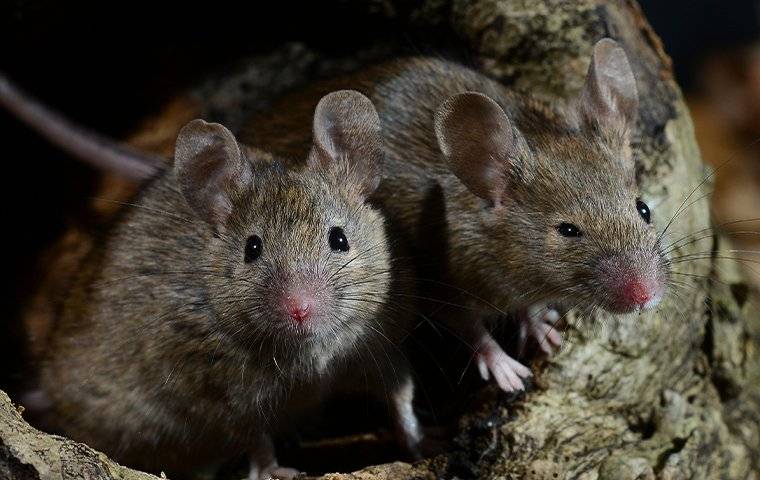
Help! I Have A Rat Infestation Inside My Columbia Home!
Rats might look cute on the TV screen or in a pet shop, but you don’t want stray rats making your home into their own. Unfortunately, rat infestations are all too common for Columbia homeowners.
Rats, like most rodents, have a long history of depending on humans for their basic needs. Before they began invading modern homes, rats would stow away on ships. Sticking close to humans has given rats easy access to food and shelter for centuries, and the rats in Columbia aren’t any different.
Here’s what Columbia homeowners should know about the signs of a rat infestation, what causes a rat infestation, six tips for dealing with rats, and how pest control in Columbia can help.

Do I Have A Rat Infestation?
The first step to getting help for the rat infestation in your home is identifying it. While the signs of most rodent infestations can look similar, here are some tell-tale signs of a rat infestation in your Columbia home.
- Droppings: Rats can produce up to forty droppings in the same night, so you may find these tiny, dark pellets scattered in areas of your home with high rat activity.
- Scratching noises: Rats aren’t quiet. While roof rats may create scratching noises when they climb, brown rats can cause grinding noises when they burrow into your basement or home.
- Rat nests: Like many rodents, rats like to create nests when they start to multiply. You can find rats in your attic, basement, loft, or even the cavity of walls. Rats will shred available materials, like insulation or newspaper, to create their nests.
- Footprints: Rats may walk through their own droppings or spilled food, which can create footprints around your home.
Along with the signs listed above, you may also see live rats. While this isn’t as common, it’s possible to see live or dead rats scurrying across your home, especially at odd hours of the night when they’re most active.
Where do rats live in your home? Like many rodents, rats prefer to hide in isolated areas of your home where they are unlikely to be discovered. This may include nooks and crannies in your attic, basement, garage, or another corner of your home. If they can chew through your insulation, rats may also hide inside your walls and create nests.
Rooms that are dark, have extra moisture or humidity, and provide access to a food source can all become hiding spots for rats – so kitchens and basements are great places to look for possible rats.
Keep in mind that rats are nocturnal, which is why many homeowners might not realize they have a rat infestation. These rodents are most likely to leave their hiding spots to search for food and water at night, but you may still see signs of their presence – like droppings, runways, chewed wires, scratching noises, and potent odors from their waste.
What Causes A Rat Infestation?
While rats can enter your home by accident, there’s usually a specific cause of a rat infestation. Rats usually invade your home for the same three reasons: they’re looking for shelter, food, or water. Most of the time, it’s all three!
Shelter
Although Columbia winters may be milder than most, rats still need to seek shelter as the temperatures drop. Any home that’s nearby and warm can serve as a shelter, especially if it also has access to food and water.
Food And Water
While rats can survive in most homes, it’s not a coincidence that they like to infest poorly maintained homes. Rats aren’t picky about what they eat, but they’ll eat most human foods and scraps that they can find.
If you leave out leftovers, don’t clean up after meals, or don’t keep a tight lid on your garbage can, you’re more likely to attract rats. Excess moisture or plumbing issues could also be an attraction for rats. Like any rodent, rats need water as much as they need food. A humid basement or a leaky water heater could provide the perfect place for them to set up camp.
Easy Access
Even if you store your food and water responsibility, it’s still possible to attract rats if your home is easily accessible. Maybe there’s a crack or gap in the baseboards, which can allow rats to get inside. Small gaps and cracks may not seem like much of a threat, but rats have sharp teeth that allow them to chew through all kinds of materials. A little chewing can turn a tiny hole into a rodent entry point.
If you live in an apartment complex, it may be even easier for rats to enter your home through plumbing systems or neighboring units. While their craftiness can make it much harder to prevent rats, sealing off rodent entry points is the best way to stop rats from getting inside.
Here Are Six Tips For Dealing With A Rat Infestation
Are rats hard to get rid of? Some homeowners may assume they can get rid of rats in South Carolina on their own, often by using DIY methods. This may include techniques like essential oils or smells that keep rats away. Given how quickly rats can reproduce and how clever they can be at hiding, most DIY methods aren’t truly effective for rat control – nor do they address why rodents are targeting your home. Ultrasonic rodent repellers, mothballs, peppermint, and rat poison won’t get the job done, and these methods may even be toxic for your family or pets – so it’s usually a good idea to steer clear of DIY rat control.
While you may need professional help for existing infestations, there are steps you can take on your own to prevent future rats, such as:
- Don’t store your food and trash in areas that rats can access. Food that’s sitting out or trash cans that are left open are all accessible to rodents. Make sure you’re keeping any food products in sealed containers or packages, using tight-fitting lids on indoor and outdoor garbage cans, and using trash bags that won’t leak.
- Keep your sink clear of dirty dishes. Rats, along with most pests, can use dirty dishes as a food source. Make sure you’re not letting dirty dishes sit in the sink overnight.
- Seal any potential rodent entrances. Rats need a way inside, so using caulk or steel wool to block off holes, cracks, and gaps will prevent them from getting into your home.
- Keep your clutter under control. Rats thrive in clutter and may use storage boxes, newspapers, or other materials to build nests. Keeping your home organized can help prevent this from happening.
- Don’t forget about outdoor trash cans or compost piles. Outdoor garbage cans and compost piles can also draw rats in, so you’ll want to seal off these areas.
- Get rid of the extra moisture. Rats love water, so excess moisture and humidity around your home can attract them. If you have a moisture or humidity problem, you should address this as soon as possible.
Can you get rid of rats without killing them? Rats can be dangerous and cause plenty of damage to your home, but can you get rid of them without killing them? Unfortunately, it is very difficult to completely eliminate a rat infestation without killing them – especially if you’re not using professional help.
You can use rat traps to trap and release some of these rodents in your home, but you’ll have to use a humane rat trap. Many rat traps are designed to kill rats instantly, but some live traps will safely cage the rat without harming it.
However, rat traps aren’t very efficient for eliminating rat infestations. Not only do you need a large number of traps, but you’ll also need to place them in exactly the right spot to catch your rats.
Some homeowners may also try to use ultrasonic rodent repellers, which emit a frequency that’s unpleasant to rats but won’t harm them. While ultrasonic rodent repellers may temporarily get rid of rats, they usually won’t permanently deter them. Rats are clever, and they may just find new routes and pathways to get around your home.
If you’re interested in getting rid of rats while causing limited harm, you can always talk to a local pest management professional for more guidance.
What Can Go-Forth Home Services Do About Rats In My Home?
If you see any signs of a rat infestation in your home, including live or dead rats, it’s time to contact the pros at Go-Forth Home Services immediately. Both dead and live rats are extremely dangerous and destructive, and you shouldn’t give them any more opportunities to ruin your home – or your health.
If you think you could have rats or you would just like to learn more about rat prevention for Columbia homeowners, don’t wait any longer – call us today at Go-Forth Home Services to schedule your inspection.
Customer Reviews
-
“He spent time educating us about "pests" and provided information regarding services with GoForth.”- Joyce C.
-
“Texted me before coming. Worked with me playing musical rooms with my dogs. I'll see how things are.”- Constance E.
-
“Amazing response time, reasonable prices, great customer service. Tevin was thorough and confident in his plan to fix our horrendous fire ant problem. We have had negative experiences with prior exterminators and probably waited way too long to call Go-For”- Ashley T.
-
“- Toya B.
We have been customers for almost 7 years for a reason. Our technician is the best. He always knows exactly how to address whatever pest has decided to bother us. We have referred them to many of our neighbors. Well worth the cost not to have to worry a
” -
“Answered all my questions and I felt their pricing was very reasonable.”- Deborah J.
-
“Brian went above and beyond what was expected, and I hope I get him again as my technician for future services!”- Tam L.
-
“He was thorough with inspecting and treating our home, which I really appreciate, and he took the time to answer my many questions.”- Jasmine B.
-
“Love the detailed summary and pics of what he did and saw! And did I mention how wonderful Olivia was to get us all set up?!!”- Beechy A.


Over the years, we’ve boiled down our mission to a core set of values:
-
Give A CrapDelight others by owning your role and saying yes. Take pride in how you appear & act & every other detail of the job. Be on time, attentive, & enthusiastic. Act as if the buck stops with you on every aspect of the job.
-
Chase PerfectionChase Perfection, knowing full well we will not reach it, but along the way we will catch excellence. Have a sense of urgency; Go-Forth Time - right now might be the only time you have to get it right.
-
Dig Deeper
Be an action-oriented professional that makes decisions based on evidence rather than stories & assumptions. Stay curious. Data can speak for itself.
Understand the cause of the fire rather than rushing to extinguish it.
-
Fight For SimplicityKeep it simple & consistent. Focus on how things should be done every time.
-
Face It, Fix ItConfront challenges directly and address issues head-on. A bias for action and powerful conversations drive our progress. It’s about getting it right rather than being right.
-
Grow!Growth is our purpose. Growing as people & growing our business.